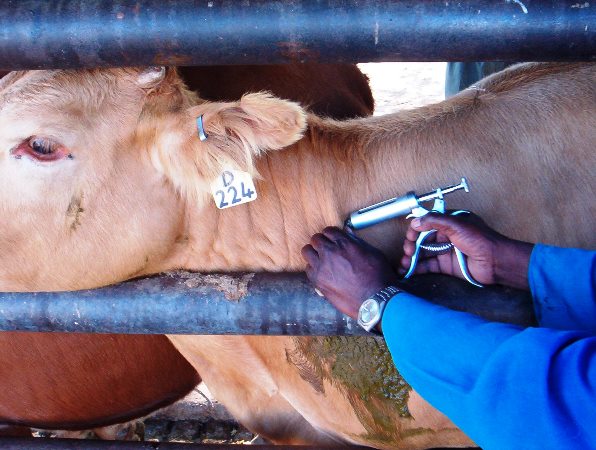
The basic principle of vaccination is that a disease-causing agent is given to an animal in a killed or weakened form (or in the form of proteins genetically engineered to look like a disease-causing agent), in order to stimulate the production of antibodies to fight off the disease.
Why do we vaccinate cattle? Of course, the reason is to attempt to prevent disease. However, if our timing is wrong, we can actually make the conditions worse.
Vaccination isn't the same as immunization. When we vaccinate, we hope that immunization occurs — but this isn't always the case. In order to have good immunity, the calf must be able to respond to vaccination. This simple premise is often overlooked because we tend to take immunity for granted.
There are several reasons that vaccinations may not result in immunity, but the most common is probably stress-related. Novelty is one of the greatest stressors of livestock. I'm quite certain that many of the high-risk calves we see in our practice have had a tremendous dose of novelty by the time they arrive at the feed yard — weaning, auction markets, order buyer's facilities, livestock trailers, etc. Then we stack the physical stressors such as shrink, inclement weather and lack of rest on top.
These stressors cause the release of a host of hormones that will hamper the immune response. Cortisol is possibly the most important of these hormones. It's so effective in shutting down the immune system, it's commonly used to control hyper immune reactions (allergic reactions) in people.
In order for the stressed calf to respond to vaccination, we must allow the calf time to recover from his stress episode. We encourage our clients to wait at least 12 hours after arrival before processing. In two extreme situations, I've waited as long as two days after arrival before processing.
Vaccinating cattle while they're still under stress is kind of like swinging the bat before the pitcher releases the ball. It's simply going through the motion. We can say the job is done, but we can't say it was done well or done right.
If the job is to be done well, we must apply the principles of good animal husbandry: clean water, high-quality feed, a comfortable place to rest and time to rest. If these are provided, the calf will be able to clear these excessive stress-related hormones from the bloodstream. Once this occurs, the calf will have a greater chance of responding to the vaccines and should actually become immunized.
Immunity isn't automatic. It shouldn't be taken for granted that just because we administered a vaccine to an animal, it is immunized. We have to give the calf the best opportunity we can to develop immunity.